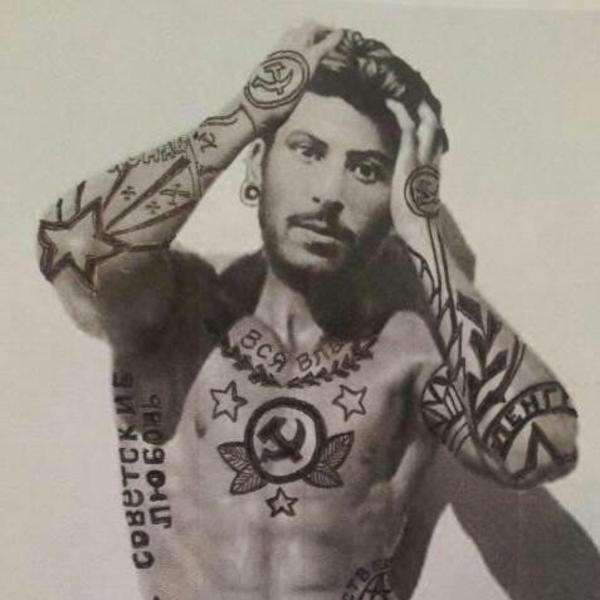This… is actually not a bad article. I would recommend it and maybe form your own opinions on the topic afterward. I do feel that the term “middle class,” while perhaps useful in some cases, mostly obscures the social situation in which we often find ourselves in. Well, certainly better than the People’s World articles, at the very least.
Not too bad an article, but it’s glaringly missing any discussion of labor aristocracy, unequal exchange, global income levels, surplus value, or the types of work waged US workers are engaged in, and how that fits in with marxist analysis.
I don’t think that the article was meant to cover all this in detail as it was mostly just talking about the “middle class” itself and what counts as “middle class” in the United States, but you do make fair points. I think that the topic definitely deserves more elucidation, imho, beyond what was given here.
A lot of this is fresh in my mind rn, cause I just finished recording divided world divided class by zak cope, and it’s been extremely convincing. US workers might have worsening standards of living, but their median inflation and PPP adjusted wage is still like 8x higher than the global average. Whether they even count as working class is debatable, since their work is largely not production anymore, but service, and they don’t contribute to capitalist surplus.
A good analogy would be that of a plantation cook to the slaves working in the field: the house cook doesn’t create a vendible commodity, and doesn’t contribute to the slave masters wealth, rather they are paid out of a portion of the surplus created by the field slaves. US workers are a tiny minority of the global working class, and it’s not difficult to appease them with super wages, and extremely low cost products whose real cost is borne by global south workers.
I think the working class includes everyone who has to sell their labour to make a living, so it doesnt matter whether they work in production or in services. There is certainly a material difference between workers in the imperial core and in exploited nations, but I dont think its a question of belonging to the working class or not.
That would be the understanding that me and several other comrades have of the working-class or proletariat, but I’ll say no more on this topic as I’m trying to keep an open mind, but I get the sense that a lot of government and other statistical analysis hides the social reality of a lot of US workers.
Because, damn, I’ve certainly seen some pretty miserable people the last time several times in each of the jobs that I held; it’s pretty damn disgusting what goes on.
It gets messy, and I could share the two books and sections where these terms are being debated, but essentially it comes down to how you define working class, worker, proletarian, etc. A house cook on a slave plantation doesn’t produce the surpluses that build the wealth of slave economies… their livelihood is cut out from a portion of the surplus the slaves produce. They might work for a wage, and they might work hard too, but they don’t build the wealth of the slaveowner. Are they working class / proletarians? In the strict sense no, because they too are parasitic on the slaves.
So the main criteria for working class in the strictest sense, are often:
- You produce a vendible commodity that builds the wealth of another class.
- You are paid out of profit, not revenue
- Thus you produce surplus value, (IE a portion of your working day is for yourself, the other part is for the dominant class)
This then gets extended on a world scale because the source of capitalist surplus value is currently that superexploitation of global south workers, with imperial core workers akin to the role of house servants.
Also It becomes really difficult to near impossible to calculate “value added” for people not engaged directly in production. This comes into play with transportation workers, or people who move consumer goods around, or add branding, which is a lot of the service economy, so there’s a lot of debate about them. Sure it might be vital to move goods from point A to point B, but what is the “value added”, and is that extra labor time only necessary because imperialism exports production far away for the purposes of low wages? Similarly is the house servant only necessary because the plantation exists in the first place?
It comes down to whether you want to use the term working class to those that may not technically produce surplus value.
Just a nitpick: services can be commodities too. Look at how Marx talks about transportation in Vol. II. It’s a commodity that is produced at the same time that it’s consumed. The bus company sells getting you to your destination. Then the bus driver produces it by driving at the same time that you consume it by sitting on the bus.
If the plantation cook fed the enslaved workers who grew crops for sale, then the value of the cooked food would pass into the value of the crops. The same goes for the person sweeping the factory floor, etc. It’s all part of the production process.
The problem with US workers is a lot of them aren’t part of production at all, but of circulation, which produces no value. Sales workers, retail workers, etc.
US workers are a tiny minority of the global working class, and it’s not difficult to appease them with super wages, and extremely low cost products whose real cost is borne by global south workers.
This is the main point, and I 100% agree.
I don’t want to come off as dismissive, just that I’m still kinda learning on these issues in particular. 👍
I must admit that I feel that since the statistics are in themselves largely bunk anyways (and you basically have to read in between the lines when reading them), I’m not sure I’d want to actually take a side on this issue just yet. That, and I can be pretty leery of Monthly Review and writers like Zak Cope (and John Bellamy Foster for that matter).
Anyways, I’ll meditate on what you said, but for now, I’ll try to keep an open mind on the matter.
Episode 91 of the Citations Needed podcast also discusses the use of the term middle class, if you as interested
Never listened to them, but I’ll give 'em a listen sometime.
For the record, this article is against using such terminology (terms such as “middle class” and such).
IMO this ignores the international division of labor.
Let’s say there was a revolution in the US and the workers seized Walmart. They still wouldn’t control the means of production, only the means of circulation. Production is controlled by other companies in other countries.
Then the bourgeoisie of the world would impose sanctions on the new country that would make the ones on Venezuela look like child’s play. No more goods would get into the country. Walmart workers could distribute whatever was on the store shelves, but as soon as that ran out they’d be out of luck.
Proletarian class consciousness and solidarity has to encompass the full international division of labor, from agriculture and extraction, to manufacturing, to information and distribution.



